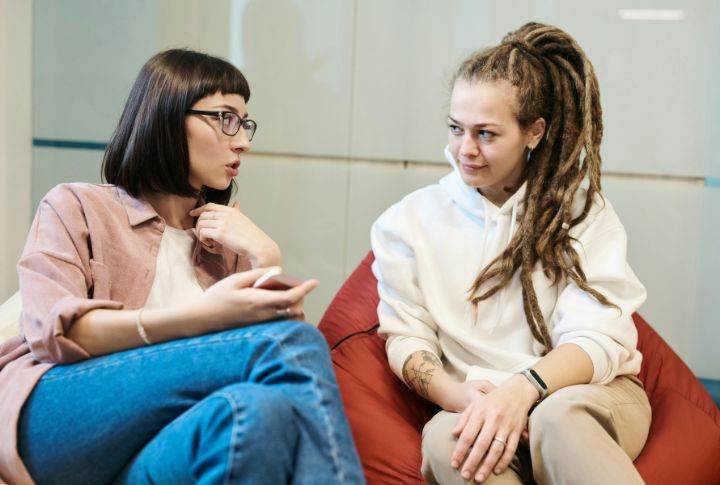
Making friends after childhood doesn’t come with playground shortcuts—it’s all timing, awareness, and a little social courage. The trick isn’t finding people; it’s showing them you’re worth finding too. Ready to update your social software and start building connections that actually stick? Let’s get into the good stuff.
Active Listening
You minimize all distractions, focusing only on the words someone is saying and the feeling behind them. Maintaining comfortable eye contact and nodding occasionally is a powerful way to show your engagement. This practice, in fact, is often more important for building a strong bond than anything you actually say because it makes the other person feel truly valued and understood.
Initiating Conversations
Being the one to start a dialogue is a positive and proactive step toward building new friendships. The best way to get a good chat going involves asking open-ended questions, which naturally encourage others to share more about themselves. These kinds of questions not only start things off smoothly but also keep the conversation flowing naturally by inviting a richer, deeper response.
Empathetic Communication
Your empathy reflects a genuine effort to understand and acknowledge another person’s feelings without judging them. You build emotional safety and strong trust in a new friendship when you can express understanding. Try summarizing what someone has told you in your own words; this demonstrates that you’ve truly grasped their personal perspective, which is very validating.
Reading Social Cues
Pay close attention to the unspoken language by observing body movements, facial expressions, and the tone of their voice. Strong awareness of nonverbal behavior gives you an edge in responding with empathy and timing. Even a calm posture or friendly expression can make you seem more inviting.
Sharing Personal Stories

A wonderful way to connect with new people is to open up and share stories from your own life. As you share your experiences openly and honestly, you begin to build trust in a new connection. Your willingness to speak openly can set the tone for deeper conversations and a more meaningful bond.
Remembering Names And Details
You send a strong message of value and respect if you take the effort to remember a person’s name and a few facts about them. Details from earlier chats, especially personal ones, often help build stronger comfort and mutual trust. Using someone’s name while you chat makes the interaction feel much more personal and genuinely warmer.
Using Positive Body Language
Communicating nonverbally through open posture and consistent eye contact shows genuine interest and engagement with the person you’re speaking with. Subtle cues like a slight nod or a gentle smile actively encourage open communication and foster trust in the atmosphere. Body language, like learning in, also helps express focus and emotional presence during a conversation.
Humor And Playfulness
A sense of humor can instantly break the ice and inject a wonderful element of enjoyment into a social interaction. Those moments of genuine laughter naturally reduce tension and quickly develop a feeling of camaraderie between people. As you engage in light, playful banter, it helps individuals bond very quickly, even when they’ve just met in a new social environment.
Giving And Receiving Compliments
Sincere compliments about something specific can truly lift another person’s confidence and reinforce your positive connection. Upon receiving praise, accepting it with a simple, gracious “thank you” shows appreciation, which encourages more positive future exchanges. Compliments also feel much more meaningful and impactful if they are specific and genuinely felt.
Adaptability In Social Settings
Being adaptable means you can comfortably adjust your interaction style to suit different social environments and the people within them. This flexibility in your conversational approach allows you to connect meaningfully with a much wider range of individuals. Let yourself approach new settings with a flexible mindset to make meeting new friends feel far less daunting.
Offering Help and Support
Showing that you genuinely care about someone’s well-being is clearly demonstrated when you offer help and emotional support. Sometimes the most valuable form of support is simply listening intently or being present for them during a tough time. These acts of support, no matter how small, are vital for strengthening the bond and trust in a developing friendship.
Vulnerability In Moderation
You can foster a deeper connection by choosing to share your feelings and personal experiences in a balanced way. Expressing your vulnerability encourages others to feel safe enough to open up themselves. However, finding a balance between openness and respecting personal boundaries prevents oversharing, which keeps new relationships comfortable and authentic.

